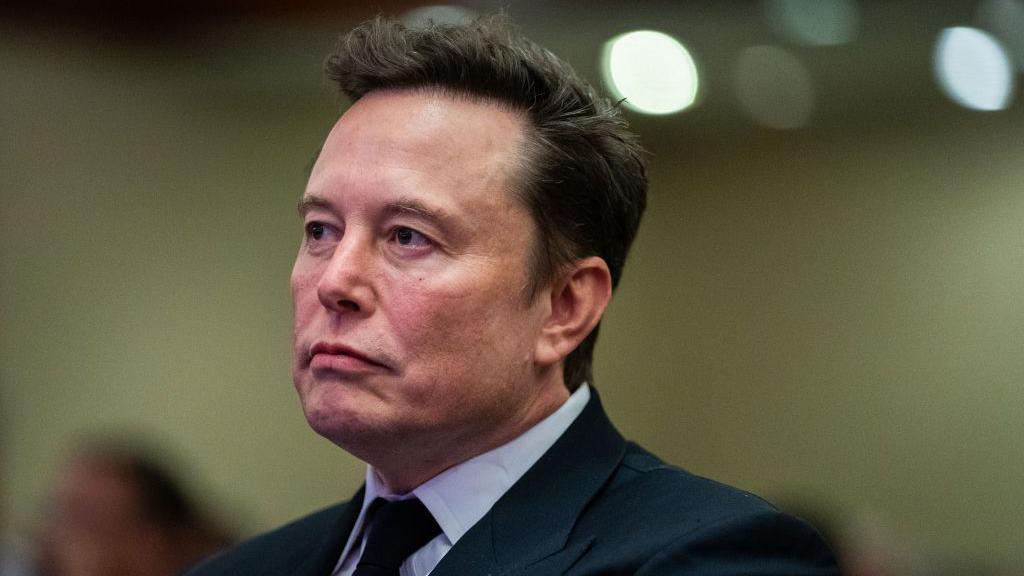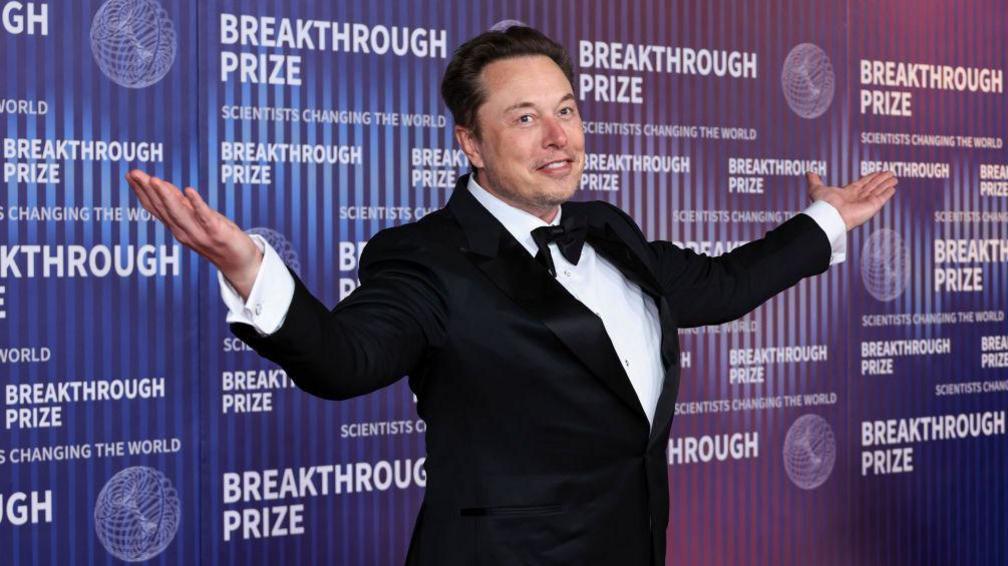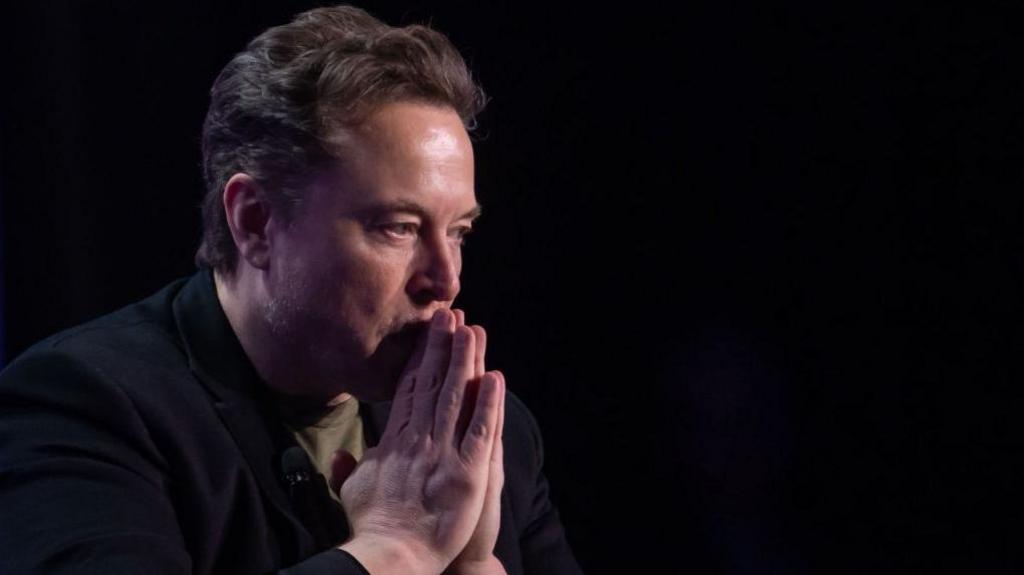Musk's record $56bn pay deal rejected for second time

- Published
Tesla chief executive Elon Musk's record-breaking $56bn (£47bn) pay award will not be reinstated, a judge has ruled.
The decision in the Delaware court comes after months of legal wrangling and despite it being approved by shareholders and directors in the summer.
Judge Kathaleen McCormick upheld her previous decision from January, in which she argued that board members were too heavily influenced by Mr Musk.
Reacting to the ruling, Mr Musk wrote on X, external: "Shareholders should control company votes, not judges."
Tesla vowed to appeal against the ruling, saying the decision was "wrong".
"This ruling, if not overturned, means that judges and plaintiffs’ lawyers run Delaware companies rather than their rightful owners – the shareholders," the electric car company said in a post on X.
Judge McCormick said the pay package would have been the largest ever for the boss of a listed company.
She said Tesla had failed to prove the fairness of the pay package, which dated to 2018.
Mr Musk, the boss of X (formerly Twitter) and SpaceX as well as Tesla, is the world's richest person. His current net worth is estimated at around $350bn, according to the Bloomberg Billionaires Index, external.
He has used his platform to make his views known on a vast array of topics, and his status seems set to climb higher still following Donald Trump's victory in the 2024 US presidential election. The president-elect has picked Mr Musk to lead a newly created Department of Government Efficiency (or Doge - like the dog-related meme).
Trump has said Doge will help the administration "dismantle Government Bureaucracy, slash excess regulations, cut wasteful expenditures and restructure Federal Agencies".
'Quite a combo'
A Tesla shareholder vote on the payment passed by 75% in June, but the judge did not agree the pay should be so large despite what she called Tesla's lawyers' "creative" arguments.
“Even if a stockholder vote could have a ratifying effect, it could not do so here," she wrote in her opinion.
The judge also ruled the Tesla shareholder who brought the case against the company and Mr Musk should receive $345m in fees but not the $5.6bn in Tesla shares they had asked for.
Some observers said a ruling in favour of Mr Musk and Tesla would have dealt a blow to conflict of interest laws in Delaware.
The idea of conflict rules is to protect all investors, not just minority investors, said Charles Elson of the University of Delaware's Weinberg Center for Corporate Governance.
Mr Elson said Judge McCormick's opinion was well-reasoned.
"You had a board that wasn't independent, a process that was dominated by the chief executive, and a package that was way out of any sort of reasonable bounds," he said. "It's quite a combo."
Mr Elson said he expects Tesla might try to reconstitute a similar pay package in Texas where the company moved its legal base earlier this year after the pay ruling.
- Published14 June 2024

- Published12 June 2024
